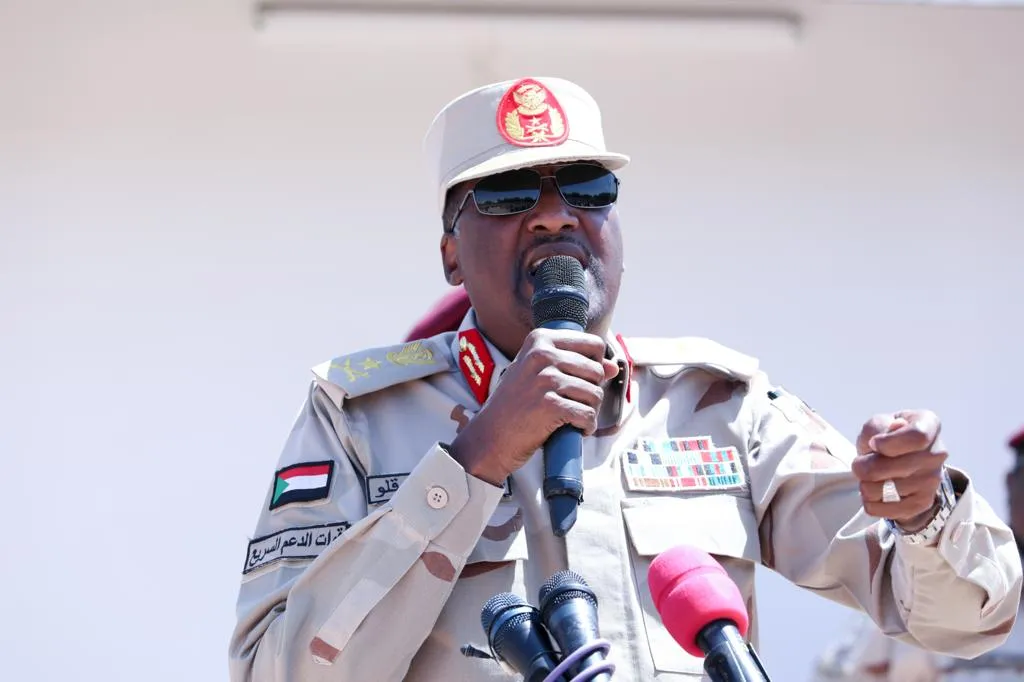Deputy commander of Sudan’s Rapid Support Forces (RSF), General Abdel Rahim Dagalo, has pledged to continue the group’s eastward military push toward the capital Khartoum and key cities, despite fierce resistance and contradicting claims from army-aligned officials.
In a statement delivered to RSF fighters at an undisclosed location, Dagalo hailed what he called “major victories” in multiple towns across South and West Kordofan, including Al-Dubaibat, Al-Hammadi, and Al-Khawi. He further announced plans to advance on strategic targets such as El Obeid, Kosti, Port Sudan, and ultimately Khartoum.
According to the RSF, their forces have reclaimed several areas including Kazgail and Umm Samima, extending their presence deep into central Sudan. However, pro-army factions quickly countered those assertions, releasing video footage purportedly showing government troops maintaining control in Umm Samima near El Obeid, capital of North Kordofan.
Dagalo also claimed that fighters from various armed factions—such as the Sudan People’s Liberation Movement-North (SPLM-N) under Abdelaziz al-Hilu and the Sudan Liberation Movement-Transitional Council (SLM-TC) led by El Hadi Idris—are now operating in coordination with the RSF as part of the so-called Sudan Founding Coalition.
Meanwhile, Minni Minawi, governor of Darfur and a key military ally, rejected the narrative of RSF dominance. In a public message, Minawi described recent territorial shifts in Kordofan as part of a “strategic reorganization,” stressing that the Sudanese army and allied forces remain committed to counter-offensives.
“Retreat does not mean defeat,” Minawi wrote. “This is a tactical pause. Victory will return to the people of Kordofan and Darfur.”
The intensified fighting across Sudan’s central corridor signals a deepening of the year-long conflict, as both sides seek to consolidate territorial control. Analysts warn that the involvement of multiple armed coalitions may further complicate mediation efforts and exacerbate civilian suffering.



